White-tailed eagle returns to England
- Published
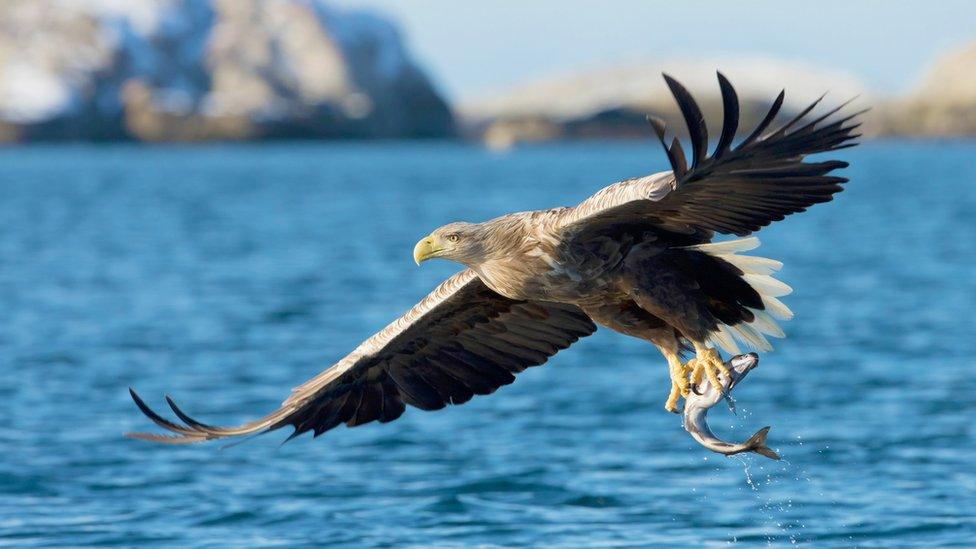
The birds, which have a wingspan of up to 8ft, had not been recorded in England since 1780
White-tailed eagles reintroduced on the Isle of Wight have been seen flying over gardens across England during the coronavirus lockdown.
Trackers worn by the eagles have shown they are exploring widely, making flights of more than 100 miles (160km).
One, known as G274, made a four-day 265 mile (427km) trip along south-west England before returning to the island.
Another - G393 - has flown to the Peak District via Suffolk after spending the winter in Oxfordshire.
The birds are four of six eagles released on the Isle of Wight in August as part of a five-year introduction programme by the Roy Dennis Wildlife Foundation.
The third eagle - G318 - is settled in the North York Moors and the fourth eagle - G324 - remains on the Isle of Wight.
In October one was found to have died and another remains missing.
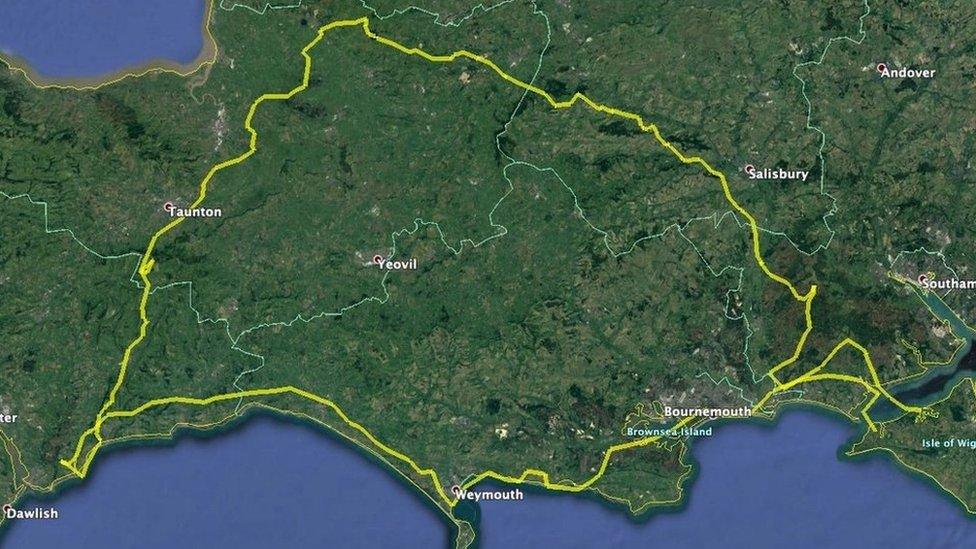
Data from the tracker attached to one eagle shows it flew 265 miles over four days
A Roy Dennis Wildlife Foundation spokesman said: "If you are fortunate to see a white-tailed eagle over your home or garden then please report it, external, but please do remember to stay at home at the present time."
Also known as sea eagles, they are the UK's largest bird of prey, with a wingspan of up to 8ft (2.5m) and feed feed mainly on fish and water birds.
The project will see at least six birds released annually but they are not expected to breed until 2024.
White-tailed eagles were once widespread across the UK, but were wiped out about a century ago.
The last known breeding pair in England were recorded at Culver Cliff on the Isle of Wight in 1780.

A SIMPLE GUIDE: How do I protect myself?
AVOIDING CONTACT: The rules on self-isolation and exercise
HOPE AND LOSS: Your coronavirus stories
LOOK-UP TOOL: Check cases in your area
VIDEO: The 20-second hand wash

- Published18 January 2020
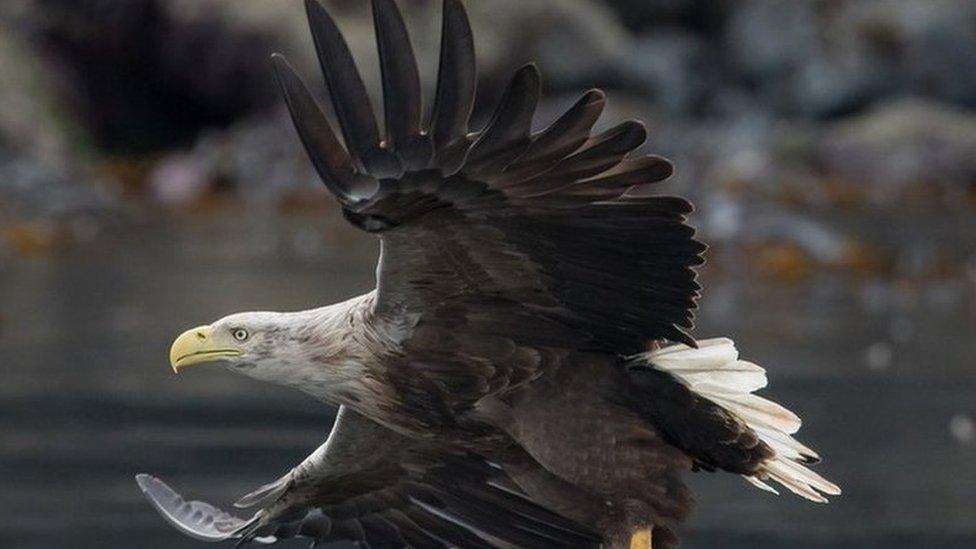
- Published24 October 2019
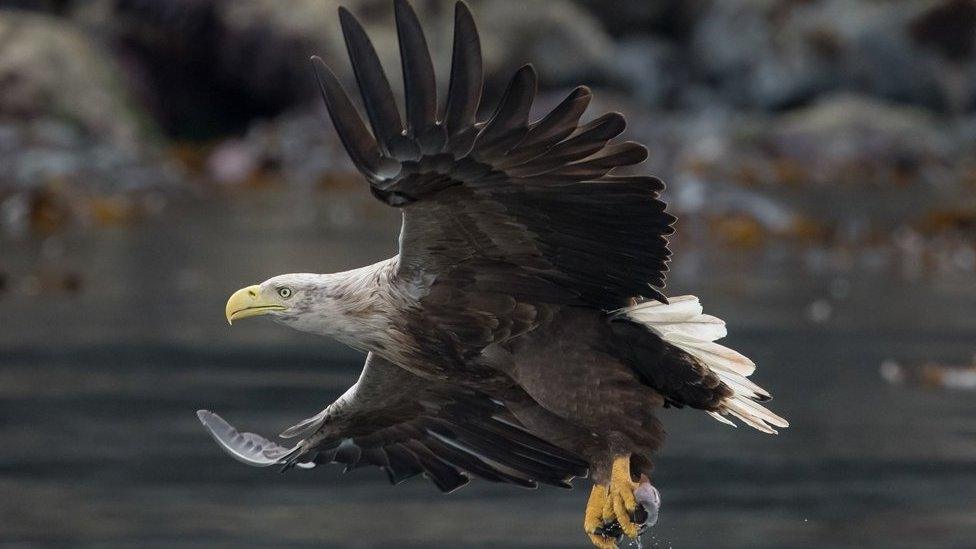
- Published22 August 2019

- Published3 April 2019
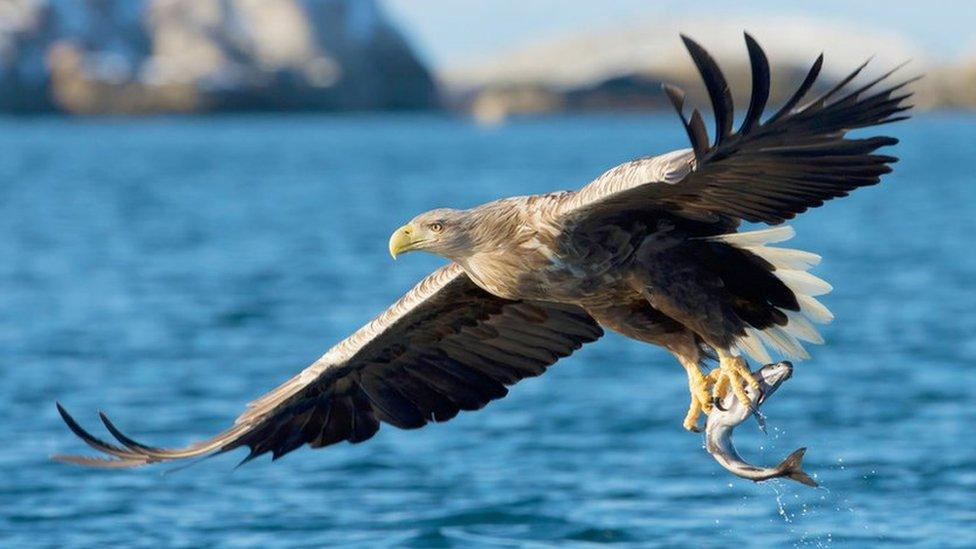
- Published2 April 2019
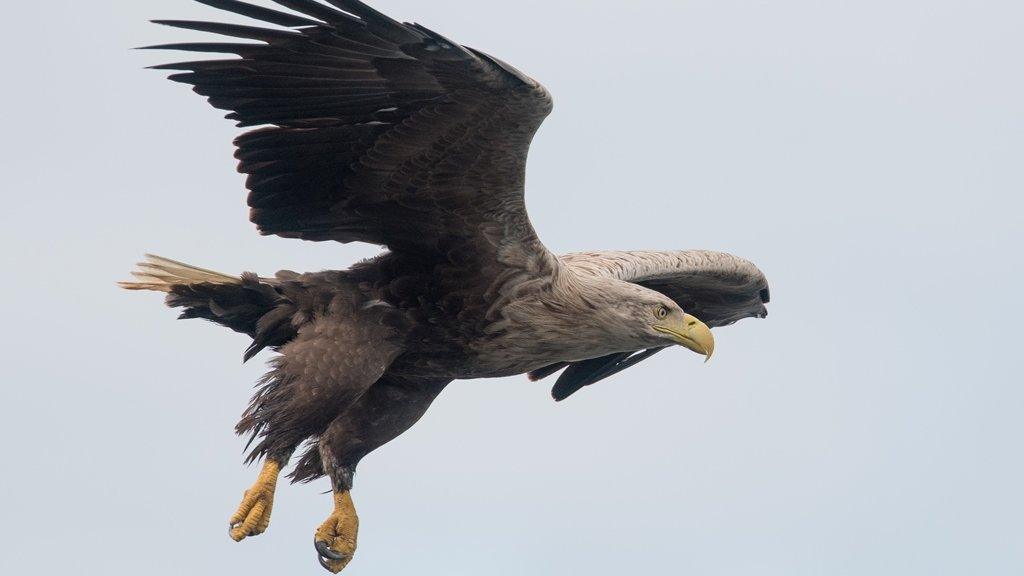
- Published20 November 2018
